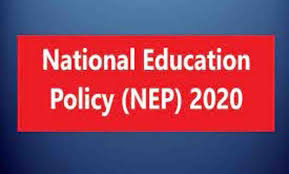The National Education Policy (NEP) 2020
The National Education Policy (NEP) 2020 is a comprehensive document that outlines the vision and goals of India’s education system for the next decade.
It covers all levels and domains of education, from early childhood to higher education, and from school to vocational education. It also proposes major reforms and innovations to enhance the quality, equity, and accessibility of education in India.
Some of the key features of the NEP 2020 for school education are:
▪️The existing 10+2 structure will be replaced by a new 5+3+3+4 model, covering ages 3-18 years. This means that the initial five years of school, including three years of pre-primary school as well as classes 1 and 2, will be the foundation stage. The next three years, comprising classes 3 to 5, will be the preparatory stage. The middle stage will consist of classes 6 to 8, and the secondary stage will include classes 9 to 12.
▪️The curriculum will be restructured to reduce the load and focus on core concepts and skills. It will also be more holistic and multidisciplinary, integrating arts, languages, sports, and vocational subjects. Students will have more flexibility and choice in selecting their subjects and streams.
▪️The medium of instruction until at least grade 5, and preferably till grade 8 and beyond, will be the home language or the local language or the regional language. Students will also learn at least three languages, with one of them being classical or modern Indian language.
▪️The assessment system will be transformed to test higher-order skills such as analysis, critical thinking, and conceptual clarity. Board exams will be made easier and low-stakes, and students will have multiple attempts to improve their scores. A new National Assessment Centre (PARAKH) will be established to monitor the quality of learning outcomes.
▪️Schools will be grouped into school complexes or clusters to ensure effective management, resource sharing, and collaboration. A separate State School Standards Authority (SSSA) will be set up for each state to regulate the schools and ensure compliance with quality standards.
▪️Teachers will be recruited through transparent and merit-based processes, and will undergo rigorous training and continuous professional development. A new National Curriculum Framework for Teacher Education (NCFTE) will be formulated by 20211.
▪️Equity and inclusion will be ensured for all students, especially those from disadvantaged groups such as socio-economically backward, differently-abled, gender minorities, etc. Special education zones (SEZs) will be set up to provide quality education to such groups.
☂️The rules to run a school in India may vary depending on the type of school (government, private, aided, unaided), the board affiliation (CBSE, ICSE, state boards), the location (urban, rural), and the level (primary, secondary, higher secondary). However, some of the common rules that apply to most schools are:
➖The school must have a valid recognition certificate from the state government or the local authority to operate legally.
➖The school must follow the norms and standards prescribed by the Right to Education Act 2009, such as pupil-teacher ratio, infrastructure facilities, working hours, teacher qualifications, etc.
➖The school must comply with the curriculum framework and guidelines issued by the National Council of Educational Research and Training (NCERT) or the respective board of affiliation.
➖The school must conduct regular assessments and examinations as per the board norms and report the results to the parents and authorities.
➖The school must ensure the safety and security of the students and staff, and implement measures to prevent any kind of abuse, harassment, discrimination, or violence.




Comments
Post a Comment